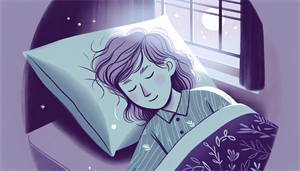If the question ‘does weed make you snore?’ has you searching for answers, you’re not alone. Cannabis impacts each individual differently, appearing to help some with snoring, while possibly contributing to it for others.
We’ll sift through the science and anecdotal evidence to give you a clear picture of what factors influence this unexpected possible side effect of weed without overly complex medical jargon or misleading assurances.
Key Takeaways
-
Snoring is often a symptom of underlying health issues such as allergies or obstructive sleep apnea, and addressing these can alleviate snoring and improve overall health.
-
Cannabis, particularly THC, may reduce snoring by functioning as a bronchodilator, with a study showing a 32% decrease in sleep apnea symptoms, but the efficacy varies and legal and health guidance is essential.
-
While CPAP therapy remains the gold standard for treating sleep apnea and snoring, lifestyle changes like quitting smoking and weight management can significantly reduce snoring and enhance sleep quality.
Understanding Snoring and Its Causes

Snoring, a common condition that many brush off as a mere annoyance, is often an indicator of underlying health issues. It is characterized by the vibration of relaxed throat tissues as air passes through them during sleep, occurring when the flow of air through the mouth and nose is partially obstructed. But what causes this obstruction? The culprits are many, including:
-
Allergies
-
Smoking
-
Excess weight
-
Alcohol consumption
In some cases, snoring can also be a symptom of a more serious condition known as sleep apnea, specifically, obstructive sleep apnea. Obstructive sleep apnea, characterized by airway obstruction leading to breathing pauses, is frequently linked to snoring. This correlation is particularly prevalent in individuals with excess weight and larger neck circumference. Addressing sleep apnea through treatments like CPAP machines and lifestyle adjustments such as weight management and smoking cessation can also alleviate snoring.
However, untreated sleep apnea can lead to serious health complications. Recognizing what causes snoring is beneficial because it helps identify potential remedies and interventions, which in turn can significantly boost sleep quality and overall wellbeing.
The Relationship Between Cannabis and Snoring

So, where does cannabis fit into this discussion? Some suggest that cannabis may potentially reduce snoring by functioning as a bronchodilator and decreasing inflammation, thus acting as a natural sleep aid. A study conducted by the University of Illinois indicates that THC, a component of medical marijuana, can lead to a notable reduction in sleep apnea symptoms, with a 32% decrease in overall symptoms. This suggests that individuals who snore because of obstructive sleep apnea may find cannabis particularly beneficial in maintaining open airways.
Bear in mind, though, that the efficacy of cannabis in reducing snoring may differ from person to person. Some may find it helpful to stop snoring, while others may not experience the same benefits. Therefore, it is advisable for individuals to seek guidance from their healthcare provider before using cannabis to address snoring. Additionally, they should exercise caution and adhere to legal regulations when using cannabis to achieve a good night’s sleep.
Cannabis Strains and Their Effects on Snoring
The decision involves not just whether to use cannabis, but also the specific type of cannabis to use. Different cannabis strains, such as:
-
Indica strains: recognized for their calming and sedative properties, which may contribute to improved sleep and a potential reduction in snoring.
-
Sativa strains: known to enhance alertness, which may not directly contribute to reducing snoring.
-
Hybrid strains: a combination of indica and sativa strains, which may have a mix of effects on snoring.
Consider these different strains and their effects when deciding which cannabis strain to use for snoring.
Hybrid cannabis strains, like Blackberry Kush and OG Kush, possess properties that encourage relaxation and sleep, which could potentially assist in decreasing snoring. However, continuous positive airway pressure (CPAP) therapy remains the gold standard for treating sleep apnea and snoring. Cannabis strains with elevated levels of THC, such as Granddaddy Purple and Northern Lights, are recognized for their ability to promote relaxation and sleep, potentially aiding in the reduction of snoring. Sleep medicine professionals may recommend different strains based on individual needs.
Therefore, the strain selection plays a pivotal role in determining the potential benefits of cannabis for snoring. It’s important to remember that while some strains may offer potential benefits, others may not, and the effectiveness can vary greatly from person to person.
Marijuana and Sleep Quality
Though cannabis might have potential benefits for snoring, its effect on overall sleep quality should not be overlooked. Regular use of marijuana can result in the development of tolerance to its sedative effects and can potentially deteriorate sleep quality over a period of time. Previous research has also indicated a correlation between certain components of marijuana, such as CBD and THC, and impaired sleep.
In fact, a study published in December 2021 found that individuals who had used marijuana within the last 30 days were more likely to experience challenges with falling asleep or staying asleep. They were also more inclined to report sleep-related issues to a healthcare provider or sleep medicine specialist. The influence of marijuana on sleep quality is therefore not straightforward and can differ among individuals. While some may find it helpful as a sleep aid, others may not.
Given these findings, it’s clear that the evidence is insufficient to conclusively determine the effectiveness and safety of marijuana for treating sleep apnea. This adds a layer of complexity to its potential use as a sleep aid and underscores the importance of further research and individual discretion.
Consumption Methods and Their Impact on Snoring

The method of cannabis consumption can also influence its effectiveness in reducing snoring. Apart from smoking, alternative methods of cannabis consumption include:
-
Vaping
-
Dabbing
-
Oral ingestion via edibles
-
Sprays
-
Marijuana tinctures
-
Topical applications
For individuals seeking to minimize snoring, edibles or tinctures may offer a preferred option as they eliminate the need for inhalation, thereby potentially lowering the likelihood of airway irritation and subsequent snoring.
The use of cannabis tinctures may potentially enhance sleep quality by reducing the time it takes to fall asleep and decreasing nighttime awakenings. However, it is essential to begin with a low dosage, as excessive cannabis intake can exacerbate snoring. Topical application of cannabis, especially CBD formulations on the masseter muscle, has the potential to reduce muscle activity, which could have a positive impact on conditions associated with snoring.
Hence, the consumption method can greatly impact the potential benefits of cannabis for snoring. It’s important to consider this factor when deciding to use cannabis as a potential sleep aid.
Finding the Right Dosage and Timing for Cannabis Use
Determining the appropriate dosage and timing for cannabis use is yet another vital factor to consider. It is advisable to begin with a modest dose, typically around 2 milligrams, when utilizing cannabis to address snoring. This can help determine if it is an effective sleep aid for the individual.
In terms of timing, it is recommended to consume an oral dose 1 to 2 hours before bed for optimal results and not to exceed 10 milligrams as higher doses may lead to poor sleep quality. The aim should be to gradually increase the dosage if necessary, always remaining alert to the potential for adverse effects.
Quitting Smoking and Improving Sleep Apnea Symptoms
Another dimension to consider in the quest for better sleep is the role of smoking. Research indicates that individuals who currently smoke are typically diagnosed with obstructive sleep apnea, also known as obstructive sleep apnoea, at a younger age compared to non-smokers. Smoking has been found to:
-
Decrease sleep quality
-
Inflame the upper airway
-
Lead to snoring
-
Worsen sleep apnea symptoms
Consequently, quitting smoking can lessen sleep disturbances and enhance overall sleep quality, thereby relieving sleep apnea symptoms. It’s clear that taking the step to quit smoking can have a significant impact on improving sleep apnea symptoms and overall sleep quality.
CPAP Therapy as an Effective Treatment for Sleep Apnea
While some may view cannabis as a potential sleep aid, it’s vital to take into account proven treatments for sleep apnea. CPAP therapy, which stands for Continuous Positive Airway Pressure, is widely regarded as the most effective treatment for sleep apnea. This therapy entails:
-
the delivery of a continuous stream of pressurized air through a mask
-
alleviating obstructed airways
-
facilitating normal breathing
-
enabling uninterrupted sleep throughout the night
Apart from addressing sleep apnea, CPAP therapy has the potential to notably enhance cardiovascular health, mental well-being, and sexual health, ultimately contributing to the prevention of cardiovascular disease and the management of high blood pressure. It works by delivering pressurized air through the airway using tubing and a mask, which helps to keep the airway open throughout the night and prevent the loss of air, ultimately reducing snoring and improving sleep quality.
It’s therefore clear that while cannabis may offer potential benefits for some, CPAP therapy remains a gold standard for the treatment of sleep apnea and its associated symptoms, including snoring.
The Role of Lifestyle Changes in Reducing Snoring
Beyond medical treatments and potential sleep aids like cannabis, lifestyle modifications can also significantly contribute to reducing snoring and enhancing sleep quality. Weight loss, for instance, can have a positive impact on reducing snoring and improving sleep apnea, achieved through the reduction of abdominal fat, increase in lung volume, improvement in airway traction, and reduction of symptoms associated with obstructive sleep apnea.
Some tips for reducing snoring include:
-
Reducing alcohol intake, particularly abstaining from it at least 4 hours before bedtime
-
Refraining from alcohol consumption for at least two hours before sleeping
-
Changing to a side sleeping position to prevent the collapse of the tongue and soft palate that commonly happens when lying on the back
Following these tips can help decrease the intensity of snoring and improve sleep quality, ensuring a good night’s sleep and a healthier sleep cycle.
These lifestyle changes, along with quitting smoking, can have a profound effect on reducing snoring and improving sleep quality. They underscore the importance of a holistic approach to managing sleep disturbances, encompassing medical treatments, potential sleep aids, and lifestyle modifications.
Risks and Limitations of Using Cannabis for Snoring

While some individuals with snoring may find cannabis beneficial, it’s necessary to acknowledge the associated risks and limitations of its use. The use of cannabis for snoring treatment may pose health risks such as airway irritation and inflammation, potentially worsening sleep apnea symptoms, and leading to tolerance to sedative effects. Prolonged cannabis use has been linked to adverse impacts on sleep, including sleep deficits, reduced REM sleep, decreased slow wave sleep, and changes in sleep architecture.
Indeed, there is a potential risk of dependency or addiction associated with the use of cannabis for snoring, especially when higher doses are used over a prolonged period. It’s therefore essential to approach the use of cannabis for snoring with caution and under the guidance of a healthcare provider.
Summary
In conclusion, while cannabis may offer potential benefits for snoring, it’s important to consider its impact on overall sleep quality, the risks and limitations associated with its use, and the individual variability in response to cannabis. It’s also crucial to consider proven treatments for sleep apnea, such as CPAP therapy, and the potential benefits of lifestyle changes. Ultimately, managing snoring and sleep apnea requires a comprehensive and personalized approach, taking into account various factors and potential interventions.
Frequently Asked Questions
Can smoking cannabis cause snoring?
Yes, smoking cannabis can cause snoring due to the direct association between smoking and snoring. The more a person smokes, the greater their likelihood of snoring and its severity.
What drugs cause snoring?
Snoring can be caused by drugs such as alcohol, sleeping pills, antihistamines, and pain medications (especially narcotics). If you experience snoring, it could be a sign of the potentially dangerous condition sleep apnea.
Does weed cause sleep apnea?
No, there is no evidence to suggest that marijuana causes sleep apnea. However, smoking marijuana, like smoking cigarettes, can worsen the symptoms of sleep apnea.
Can cannabis help reduce snoring?
While some research suggests cannabis may reduce snoring by acting as a bronchodilator and reducing inflammation, its effectiveness varies among individuals. It's important to consult a healthcare professional before using cannabis for this purpose.
How does cannabis impact sleep quality?
Regular use of marijuana can deteriorate sleep quality over time as tolerance to its sedative effects develops. This can result in disrupted and poorer quality sleep.


